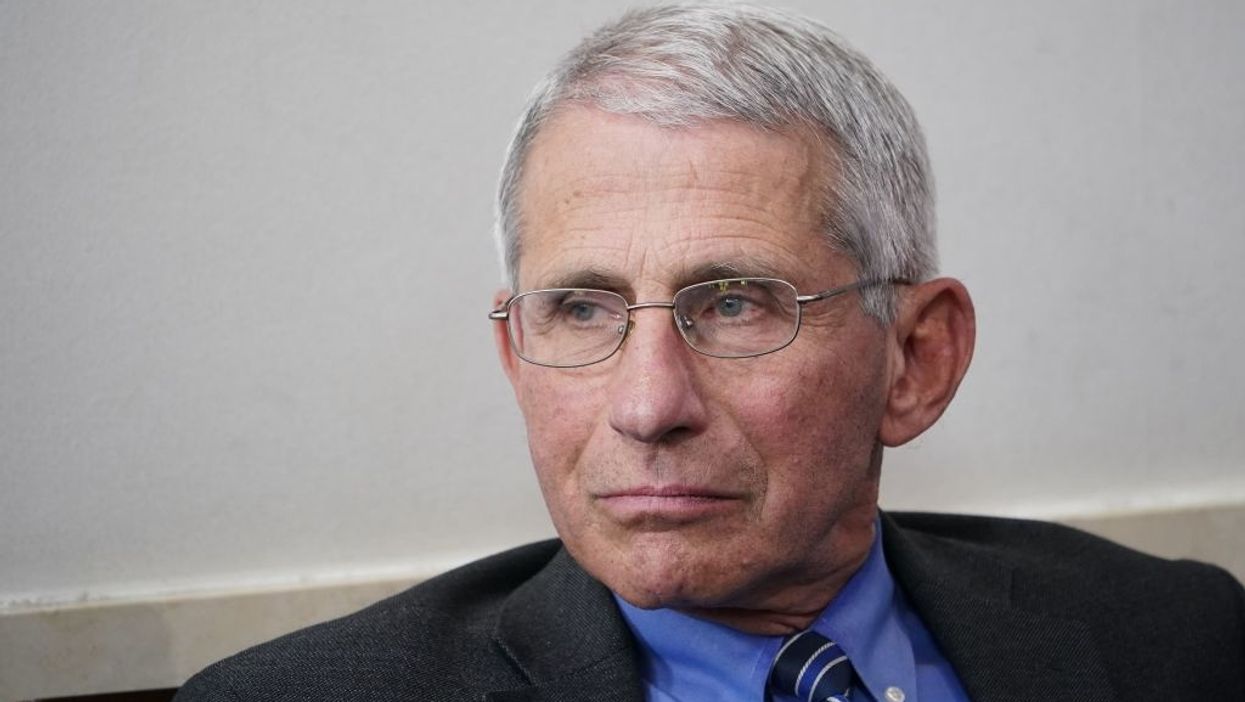
MANDEL NGAN/AFP via Getty Images

Some communities will need to make modifications on how their schools operate
Dr. Anthony Fauci said it is time to start thinking about reopening schools, but also noted that the hardest-hit communities will need to "be creative" by implementing "some modifications" to avoid COVID-19 outbreaks.
"I think we need to discuss the pros and the cons of bringing kids back to school in September," Fauci told CNN.
"I hesitate to make any broad statements about whether it is or is not quote 'safe' for kids to come back to school," Fauci said. "Children can get infected, so, yes, so you've got to be careful. You got to be careful for them and you got to be careful that they may not spread it. Now, to make an extrapolation that you shouldn't open schools, I think is a bit of a reach."
"When you talk about children going back to school and their safety, it really depends on the level of viral activity, and the particular area that you're talking about," he continued. "What happens all too often, understandably, but sometimes misleadingly, is that we talk about the country as a whole in a unidimensional way."
Fauci warned that there is no one-size-fits-all policy for reopening schools across the country.
"In some situations, there will be no problem for children to go back to school," said Fauci, the director of the National Institute of Allergy and Infectious Diseases said. "In others, you may need to do some modifications. You know, modifications could be breaking up the class, so you don't have a crowded classroom, maybe half in the morning, half in the afternoon, having children doing alternate schedules. There's a whole bunch of things that one can do."
The Centers for Disease Control and Prevention published guidelines and precautions schools can make to ensure a safe reopening. The CDC recommends personal hygiene, hand-washing, staying home when sick, wearing face coverings, social distancing, spacing desks six feet apart, regular cleaning of frequently touched surfaces, proper ventilation, and limiting sizes of groups.
By mid-May, at least 124,000 U.S. public schools across 48 states were closed because of the coronavirus, affecting over 55 million public school students, according to Education Week. There were also hundreds of colleges that moved to online courses or canceled classes, affecting more than 14 million U.S. students.
More than 160 countries closed schools over COVID-19 concerns, forcing nearly 90% of the world's student population out of class.
After research and studies discovered that the coronavirus didn't affect children as severely as adults in most cases, some countries kept their schools open, including Singapore, Australia, Sweden, and Taiwan.
Researchers at the University College London published a paper in The Lancet Child and Adolescent Health that doubted the effectiveness of shutting down schools to prevent the coronavirus deaths.
"The international research team reviewed 16 studies, which included nine peer-reviewed papers on the 2003 SARS outbreak, one not peer-reviewed preprint on previous coronavirus transmission and five not peer-reviewed pre-prints and one report on the COVID-19 pandemic," the paper said. "Data collected from the SARS epidemic did not generally support a role for school closures; one modeling pre-print showed that school closure, as an isolated measure, was predicted to reduce total deaths by only around 2-4% during a COVID-19 outbreak in the U.K."